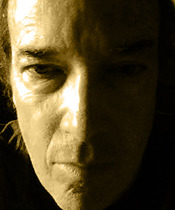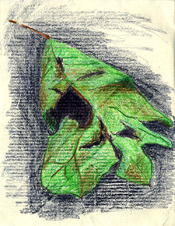Letters From Surprise & Delight: ‘Askfulness’ and Thankfulness
Surprise & Delight is a name attached to a source I’ve been occasionally hearing from over a period of about 25 years. I don’t know what or where it is. I’m not a big fan of the term ‘channeling’. However, when I write down stuff ‘from Surprise & Delight’ much of it has the trappings of channeling, often to my discomfort. Surprise & Delight is a name ‘they’ (it) suggested to me almost from the start, claiming it represented a sort of collective or corporate entity. I don’t know. It could be anything.
I do know that as strange as it sometimes gets, there’s something to it. Usually while I’m writing it, I’m thinking how outlandish it is; then later I have to admit I learned something. For example, while I was writing the material below, my conscious impression was that ‘askfulness’ was one of the stupidest words I’d ever heard, much less committed to paper by my own hand. When it was over, I had to completely reverse that opinion. I was also struck by the definition of happiness.
The following is from January 2010, after one of our big snowstorms.
Askfulness is the way toward receiving things worth being grateful for. It’s basically the state of knowing that you are not the source of everything you need. There is indeed a paradox here. Askfulness means you acknowledge the greatness that is so much larger than yourself. It also means you are the source of everything you need when you open yourself to it, that is, when you ask for it.
You can practice this sort of thing in reverse, by contemplating something you’ve received that you enjoy and realizing that if you’d thought of it, you would have asked for it. For example, a beautiful snow-covered landscape all around you with a brilliant blue sky and, inside, a warm fire. You might take it for granted in the rush of being preoccupied with so many ‘important’ desires and goals in your life. But it – the simple beautiful day – is also important to you, and a help to you, a real blessing. Realize that you wanted it, and you have more awareness of the need to be grateful, which is, to be happy. To be grateful is to be happy and to be happy is to be grateful.
 Saturday, October 2, 2010 at 01:08PM | by
Saturday, October 2, 2010 at 01:08PM | by  BVD | in
BVD | in  Commentary,
Commentary,  Letters from Surprise & Delight | tagged
Letters from Surprise & Delight | tagged  channeling,
channeling,  gratitude,
gratitude,  happiness,
happiness,  meditation | |
meditation | |  Post a Comment
Post a Comment 






Skywriting
Looking out at the sky and noticing the complete change, in the course of an hour, from sunrise to now – from a clear bright-green horizon and a great flying wedge of dark cloud streaked with rose-orange, to this scatter of soft cold clouds against a glaring white ceiling – the gray cloud pattern appears suddenly as a sort of writing. Literally a message. The sky is a constantly changing series of new messages we’re meant to interpret. The interpretation is not a set of words but just the taking in, as much as possible, of that moment. That moment as written.